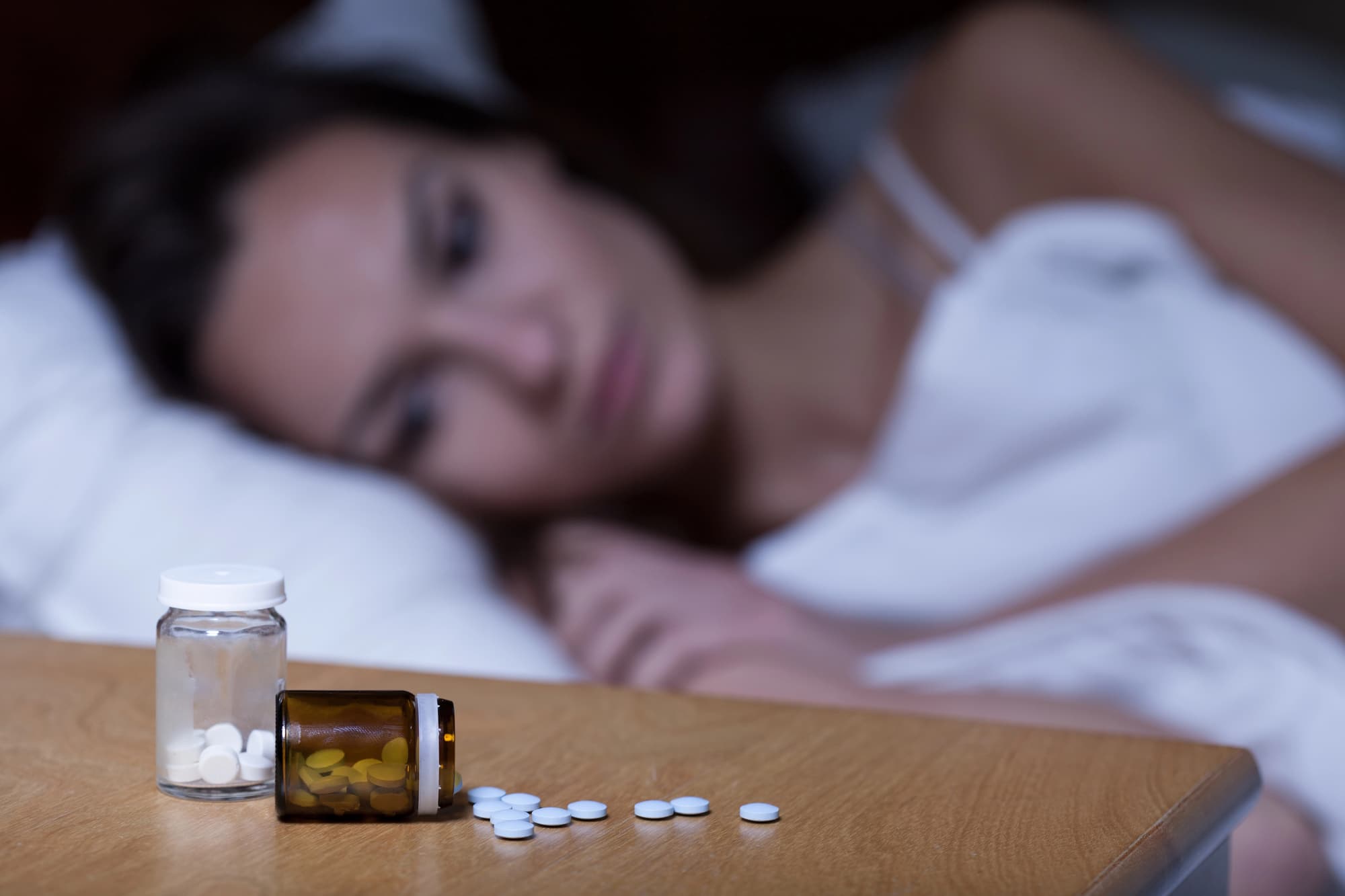Dangers of going cold Turkey: Don’t do it!
April 30, 2024
4:08 pm

Dangers of going cold Turkey: Don’t do it! Sounds like a plea rather than a suggestion? Yes, because the risks are very, very significant.
It is never a good idea. While I am not here to change your mind, If I were able to speak to you, in person, right now, I would do my best to encourage you not to. You may have seen this in films and television shows, but they can never portray how dangerous this can be. https://www.gatewayfoundation.org/addiction-blog/dangers-of-detoxing-at-home/ The term, according to the Cambridge dictionary (https://dictionary.cambridge.org/dictionary/english/cold-turkey) means “The period of extreme suffering that comes immediately after a person has stopped taking a drug”.
Often, people have been using alcohol/drugs for years and have been slowly swimming down a river in the middle east: denial. When they decide to stop, a lot of clients think they can do just that: stop. However, as anyone addicted to anything will tell you, addiction is very complex. Sheer force, sheer willpower will, more often or not, be insufficient to overcome the temptation to use it again, let alone the cravings and side effects of stopping suddenly.
Stopping alcohol and certain drugs suddenly can be, not only intense, but also life threatening. Attempting to stop using drugs and alcohol can put someone, not only in danger of withdrawal and craving, but can be a strong pull factor towards relapse. This is why, at the very least, someone wanting to stop should have intense home treatment, under professional medical supervision or, preferably, be admitted to a registered drug and alcohol rehab center. https://riveroakstreatment.com/drug-detox/cold-turkey/drugs-not-to-quit-cold-turkey/
There are those who will try and circumvent waiting lists at local drug and alcohol services and self-present to accident and emergency departments: It won’t work. In 2011, In the United States of America, the Drug Abuse Warning Network (DAWN) Reported that around 2.5 million people (about twice the population of Hawaii) visited an emergency department due to a medical emergency linked to drug and alcohol use. Moreover, 10% of these patients were seeking a detox. This quadrupled in 2020 to over a million patients in the US seeking detox in an emergency department, and that was just for alcohol alone. Anyone who attempts to stop drinking at home puts themselves at risk of several problems that are inherent with alcohol withdrawal. Every person is different, and it is impossible to determine who will and who will not experience difficulties. Even if someone has not encountered difficulties stopping suddenly before, that in no way assures they will not encounter difficulties. Kindling
In many alcohol dependent clients, it is now evident that the severity of alcohol withdrawal symptoms can increase after repeated episodes of withdrawal. This increase may be due to a phenomenon which has been termed kindling. This can best be explained as a weak or electrical stimulus, which, initially, does not cause any noticeable behavioral or physical symptoms, can result in significant behavioral changes and physical withdrawal when the person next stops drinking. The medical evidence now indicates that patients who have previously detoxed from alcohol should be treated with a more aggressive regime of medication than those who exhibit mild signs of withdrawal. Furthermore, a 1998 research paper suggested that kindling can also contribute to a patient’s relapse risk and may exacerbate alcohol related brain damage and subsequent cognitive impairment. https://www.ncbi.nlm.nih.gov/pmc/articles/PMC6761822/ Can I not just reduce at home?
Yes, of course. However, there is little or no evidence that tapering off will reduce the effects of alcohol withdrawal. As mentioned above, the effects of withdrawal can be severe and even life threatening. Quitting while receiving the appropriate medication and medical supervision may be far more important than whether a client stops gradually or suddenly. Reducing alcohol is sometimes referred to as tapering. This is a standard practice for the reduction, under medical supervision, for other drugs such as benzodiazepines and/or sleeping pills. Clearly, someone with a 12 can a day lager habit is going to have a rougher time if they stop suddenly than someone who tapers off at a slow pace (around 1 can a week) However, that does not mean that detox at home is always a good idea. For those who absolutely insist that they will not seek professional help, there are strategies and approaches that can be taken to help themselves at home. As a registered healthcare professional, I cannot condone this but providing harm minimization advice is preferable to not giving any advice at all. Whilst it might seem simplistic, the first rule of harm minimization when it comes to alcohol is to gradually reduce the number of drinks. For example, if someone drinks five glasses of wine a day, try reducing it to four for several days, then three, etc. Another technique is to space out drinks and to substitute a non-alcoholic drink between alcoholic drinks. Diluting drinks, making alcoholic drinks progressively weaker, can also be a useful approach. One approach is to change to an alcoholic drink that you do not normally drink or, indeed, one you don’t even like. The rationale being that by doing so you are prone to drinking less, simply because you do not like what you are drinking. https://www.verywellmind.com/can-tapering-off-reduce-alcohol-withdrawal-symptoms-80195 It goes without saying that, to stop drinking alcohol, any attempt to limit intake needs to be consistent without fluctuations. Planning can help with an end date in mind: After all, tapering is not an open-ended process. There are considerable challenges faced by those tapering off alcohol. Quite simply, a tapering approach simply will not work. They may reduce/stop for a period but soon find themselves back to drinking at the same level as before they tried to stop. This can be said, especially, of those who are “heavy” drinking and those who find themselves surrounded by the triggers that encouraged their drinking and the lack of support that would have enabled and encouraged change. Indicatively, those drinkers who have tried, but cannot successfully taper for any significant period are those who go on to being diagnosed with alcohol use disorder. In other words, they are alcoholics. Others who have tried to cut back will develop withdrawal symptoms. Evidentially, simply submitting one kind of alcoholic drink for another may not help if the amount of actual alcohol consumed remains the same.
It is the same as eating low fat food. If you have two low fat chocolate bars, that are 50% lower in fat than a normal one, you have consumed the same amount of fat. As such it is a good idea for someone who wants to stop to sit down with their partner/friend/parent and draw up a list of positives and considerations of tapering at home. Make an informed decision. Regardless of how successful someone is, there is always the issue of lack of sleep when stopping alcohol (insomnia). This will, inevitably, set in after one or two days and can last between a week and ten days. However, there are those who, for psychological reasons, can experience longer term insomnia. HTTPs://www.palmerlakerecovery.com/alcohol-abuse-and-addiction/alcohol-withdrawal-insomnia/ What if I am using heroin or another drug and don’t drink alcohol?
- Forget any idea that you can simply lock yourself in your room with a bucket, some tissues, a bottle of Lucozade and some ibuprofen. While there are some substances that, theoretically, you could employ with this method, what it will never do will provide the therapy that is so desperately needed. (https://www.verywellmind.com/what-are-the-risks-of-quitting-cold-turkey-21813) This approach is often associated with opioid withdrawal, namely: heroin. The difficulty is, as the person withdraws their tolerance to opioids drops and when their cravings become too much to handle, they will obtain a new supply of opioids. Speak to anyone who has ever tried to come off opioids at home and they will tell you it is like having the worst case of influenza you could possibly imagine.
For free clinician drug advice call and speak to Paul. You can ask him anything about heroin addiction help in order to access drug addiction rehab UK.
Someone who attempts to go “cold turkey” is, more than likely, going to experience very severe nausea and vomiting. Their anxiety will spike, and it is very unlikely that they will be able to sleep for any meaningful period. In addition, they are likely to experience hot flushes as well as cold flushes. Combine this with very significant sweating and muscle cramps, with a runny nose and watery eyes and you are in for a very uncomfortable time. However, this will all be secondary to very significant bouts of diarrhoea which will exacerbate dehydration.
There have, unfortunately, been occurrences of fatalities from opioid withdrawal at home. In 2016, a study published in the Journal of the Society of the study of addiction in America found that the main cause of death of those in withdrawal from opioids have been electrolyte imbalance: caused by vomiting and diarrhea. https://redoakrecovery.com/addiction-blog/can-you-die-from-heroin-withdrawal/ Those who opt for home alcohol treatment, which I wouldn’t recommend, often choose not to be wholly open with their clinician as to what medication they are taking and any underlying chronic conditions. Over the years, I have spoken to hundreds of patients who have tried to cut down themselves, or, relatives/loved ones, with the very best intentions, have taken control of their alcohol intake and reduced the amount they are able to drink: Never a good idea! Difficulties occur because the amount people reduce by is too great. Alcohol withdrawal symptoms can present within as little as six hours.
There are some general health guidelines that can be helpful when coming off alcohol:
- Drink plenty of fluids. Dehydration is sometimes associated with alcohol withdrawal, especially if a client is prone to vomiting. Sports nutrition drinks can be useful, but high energy drinks should be avoided as these could exacerbate insomnia.
- Eating a healthy diet including complex carbohydrates so that blood glucose levels remain at an even keel and do not peak and trough.
Fresh fruits and vegetables are known to have a high-water content and thus, can be of use to prevent dehydration during detox. Watermelon is good. Aside from this they also provide an excellent source of vitamins, noticeably A, B and C, as well as calcium, potassium and fiber. Nausea is not uncommon during alcohol withdrawal and fresh, or even frozen fruit, can be blended into a smoothie: This can be far easier for someone to tolerate. Berries and peaches also have high water and vitamin contents. Green leafy vegetables are an excellent source of nutrient heavy foods for those in detox. The best examples are spinach and kale. Indeed, there is evidence that such vegetables can reduce anxiety, irritability and even cravings. Whole grains are also high in fiber in vitamin b, which are useful in withdrawal. In addition, foods rich in vitamin B (as well as carbohydrates) are also useful. Healthy fats (unsaturated) can also help the body absorb nutrients and reduce inflammation. A person’s mood may be helped by salmon, walnuts, chia seeds and flax seeds (omega 3 fats). Proteins, that help repair tissues and muscle, also need to be replaced as they are often lost during alcohol dependency. https://www.columbusrecoverycenter.com/alcohol-addiction/alcohol-detox-diet/
- Cool showers can sometimes be a useful distraction and can also reduce hot flashes, sweating and clammy skin.
- Sober friend: This is essential. Have someone with you, 24 hours a day (for the first few days at least) who is fit/able and not drinking alcohol.
- Moderate exercise: Obviously, someone who is giving up alcohol may not feel like going for a walk or a jog but there is a plethora of evidence to suggest that it can be extremely beneficial.
- Staying occupied: This is invaluable. Being busy, being distracted can not only help someone take their minds off withdrawal symptoms but can also help to reduce alcohol cravings. Simple things such as reading a book, listening to music, doing a jigsaw all have their uses. https://www.verywellmind.com/dont-be-afraid-of-alcohol-withdrawal-80194
As mentioned, alcohol detox will affect someone’s sleep: This is inevitable. Quality sleep can be invaluable to support someone while detoxing from alcohol. Poor sleep can be a precursor to stress, anxiety and high blood pressure.
How long will it take?
Quitting alcohol, within the realms of physical withdrawal, can be days or weeks. However, there are some urban legends abound. Many a caller, against advice, have ended up in hospital (having had a seizure) because they have either stopped drinking suddenly or reduced: too quickly. Contrary to popular misconceptions, the most dangerous time for alcohol withdrawal is not the first two days! (https://www.therecoveryvillage.com/alcohol-abuse/how-long-alcohol-detox-take/) Over the past few years, there has been wide ranging medical studies aimed at furthering knowledge around the effects of alcohol on the central nervous system: Both long- and short-term effects. Such studies have provided a great deal of insight into how alcohol can affect the brain and lead to seizures. While an epileptic seizure and an alcohol seizure may be present in the same way to an observer, the way they occur in the brain is very different. In essence, unlike epileptic seizures, alcohol related seizures originate in the brain-stem. They involve unique cellular, as well as molecular, mechanisms. Traditional drugs used to treat epilepsy are sometimes used for alcohol related seizures, but new evidence suggest they may not be useful. https://www.ncbi.nlm.nih.gov/pmc/articles/PMC1312739/ With benzodiazepines, withdrawal can be a very, very long process and, in some instances, can take over a year. Clearly, a year in treatment would be financially very restrictive so, what normally happens, is that a reduction plan is agreed, in the community, and then the last part is done in a center. Under no circumstances, whatsoever, should anyone ever attempt to self-withdraw from benzodiazepines or stop suddenly. The risks can be extreme, and fatalities occur: In the words of the Grange Hill Choir: Just say no! With benzodiazepines (and most drugs of dependence) the lower the dose, the slower the process. The world’s leading expert on Benzodiazepine withdrawal, the late Professor Heather Asthon, has her seminal work available online: https://www.benzo.org.uk/manual/bzsched.htm It is not just alcohol, benzodiazepines and opioids that could be problematic. There is not a drug of dependence I can think of that would be safe to stop using at home. Below is a list of the most common substances, apart from the ones above that I have seen patients present with when making inquiries or in the centers:
- Pregabalin and Gabapentin
- GHB/GBL
- Tramadol
- Ketamine
- Morphine
- Codeine
- Cocaine
- Cannabis
- Mephedrone
- Ecstasy
All of these have their specific issues if cessation is not managed by clinicians in a safe, and monitored, environment. The difficulty can be that a caller may have spoken to a friend or relative, with the very best intention, who tells them that this can be done at home. Usually because they have tried it themselves or are aware of someone who has. Please do not do this. Even if this is the case, there is no assurance that such an approach will be safe for someone else. Everyone is different. There can be no guarantees that one person’s physiological response to withdrawal will be the same as others. In short, trying to do withdraw at home might sound a good idea but it does not work. Would you try and fix a broken leg at home? Have your appendix out? No. Addiction is an illness and needs appropriate treatment.
To access drug addiction rehab UK call 0333 041 9922. We can provide free clinician drug advice. If you need heroin addiction help, it is available for free, in total confidence.

Recent Posts

The role of support groups in long term recovery
Support for long term recovery is essential. A life of sobriety is not simply about staying away from drink and drugs. It is about starting life anew. Establishing a life that has meaning, purpose and value: A life that you want to live. This can be daunting and coupled together with the challenge of staying…
info@Findmearehab.net
9:00 am, May 26, 2025

Rehab: A path from addiction to recovery
Rehab: a path from addiction to recovery. Sounds cheesy? Perhaps, but it works. Addiction is an illness, a battle, a conundrum, a quandary: Call it what you like. Whatever you call it the aftermath can be devastating. It is common to feel shame, guilt and disgust. Your self-esteem gets ruined, and fear can overtake you.…
info@Findmearehab.net
9:00 am, May 23, 2025

Sober Living Benefits Recovery
Sober Living: Benefits for recovery and healing
info@Findmearehab.net
9:00 am, May 21, 2025
